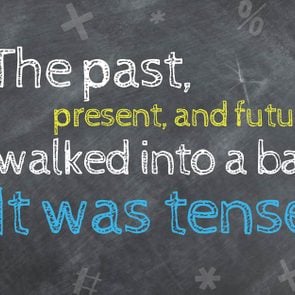“Historic” vs. “Historical”: What’s the Difference?
Updated: Mar. 15, 2024

While they both deal with the past, historic and historical aren't interchangeable words. Choose wisely with these simple tips.
When a famous political figure gives a noted speech in your town square, is it referred to as a historic event or a historical event—or perhaps both? When you’re considering historic vs. historical, are the meanings the same? At one point in history, these words were used interchangeably, but in modern times, they generally are not—an example of grammar rules that have changed.
The difference between historic and historical can be subtle, and English presents us with such subtly confusing issues like this all the time (discreet vs. discrete, elicit vs. illicit and stationary vs. stationery come to mind). Then there are words or phrases that sound similar but are not the same, such as flush out vs. flesh out, home in vs. hone in and loose vs. lose. And what about words with similar meanings, such as envy vs. jealousy? Which is better to use when? It can seem like a lot to remember, but if you take things step by step and keep some basic tips in mind, you’ll confidently make those word choices—with historic vs. historical and other language issues too.
What does historic mean?
Is historic a word you’re using wrong? Over its centuries of use, historic has come to describe something of social or political importance that happened in the past, such as the political speech we mentioned above, or the Gettysburg Address—in other words, something important in history. It’s used as an adjective and describes a noun, usually an event or a series of events. Historic could be used, for example, to describe an achievement in sports that is unprecedented, a peace agreement or even something negative, like a new high in pollution levels.
Examples of historic in a sentence
- Martin Luther King’s “I Have a Dream” speech is understood as a historic address.
- Segregation was declared unconstitutional by the historic Brown v. Board of Education decision in 1954.
- In recent times, the Black Lives Matter protests following the murder of George Floyd have been historic.
What does historical mean?
Unlike historic, historical does not imply something of particular importance. It simply means that something is relating to history. Historical would be the choice, for example, to describe an organization dedicated to an aspect of history, such as the New York Historical Society, which offers a museum and a library.
Examples of historical in a sentence
- The biography of Abraham Lincoln offered an interesting historical perspective.
- As we walked through the museum exhibit, we listened to an audio recording that provided historical context.
- An encyclopedia offers historical and factual insights.
As your grasp of historic vs. historical improves, not only will you avoid getting them confused, but you’ll also make a positive impression with your usage. Go ahead and count this among the grammar rules that help you sound smarter.
Tricks for remembering historic vs. historical
When considering historic vs. historical, try word association. Remember that historic is usually used to describe specific events; and both historic and specific end in ic. Meanwhile, historical is used more generally to talk about things related to history; and historical and general both end in al. See? Not so hard, and definitely not one of the more confusing grammar rules.
Which is grammatically correct: an historic or a historic?
The article choice before historic and historical can be a tricky one because it’s based on phonetics, but you don’t have to sweat it—both a and an can be used. That said, a is much more commonly used before both of these words in American English. That’s because the h in these words is audible rather than silent. However, because the emphasis is on the second syllable in both words, the h is pronounced somewhat more subtly than in a word like, say, hotline. That’s why some people use an before historic and historical.
Unlike something like cancelled vs. canceled, where the words really have the same meaning, historic vs. historical is a little more tricky. But if you bear in mind the info here, any confusion will be, well, history.
Historic vs. historical: Test your knowledge!
Sources:
- Merriam-Webster: “What’s the difference between historic and historical?”
- Merriam-Webster: “Historic”
- Merriam-Webster: “Historical”






















